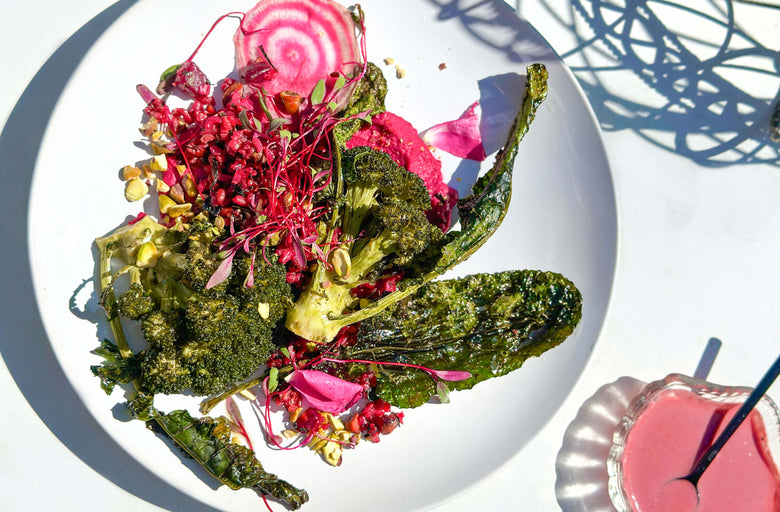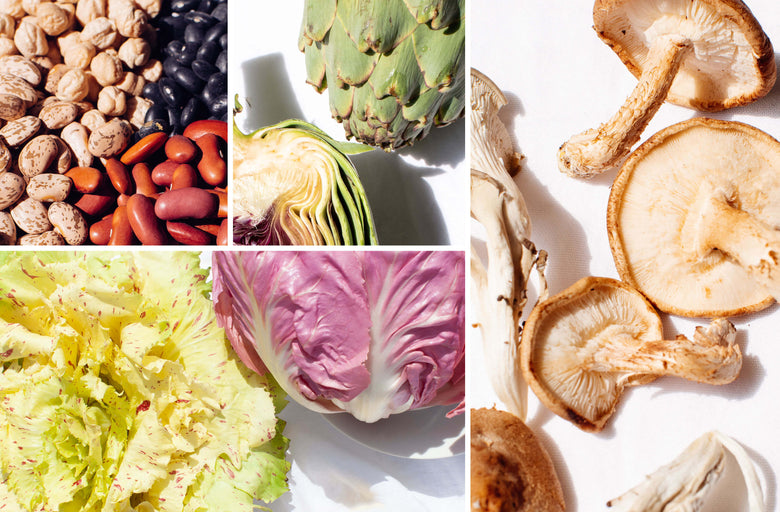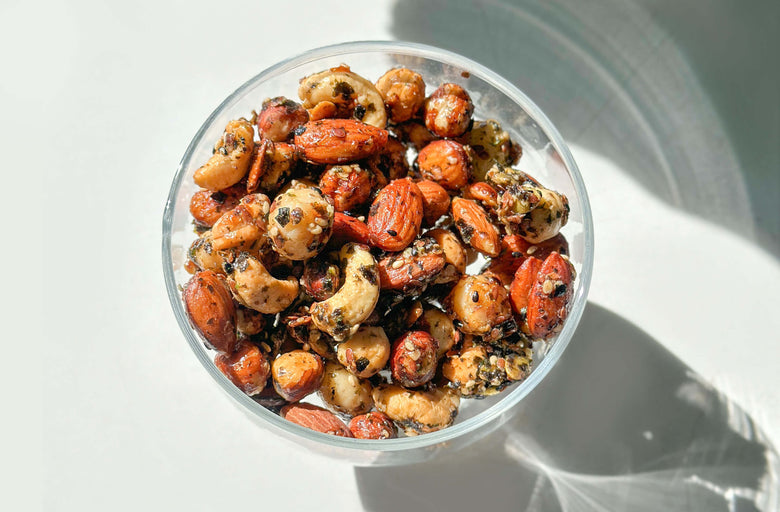Diving deep into the world of seed oils
By: Sakara’s In-House Nutritionist Colleen Coffey, MS, RDN, LDN
If you do a quick search online for “seed oils,” you’ll likely come across various articles warning against them—whether it's canola, corn, cottonseed, soybean, sunflower, safflower, grapeseed, or rice bran. They’ve been marked as inflammatory and toxic, and correlated with a variety of health conditions, from heart disease to diabetes to autoimmunity.
Kind of surprising, right? Seeds are considered integral to our health—delivering fiber, antioxidants, and healthy fats.
“Though fats have been vilified for decades, they're a critical part of a healthy diet,” says Danielle DuBoise, Sakara founder and co-CEO. “Everything from our brain to our nervous system to every single cell in our bodies requires fat to function properly. But, as with most things, quality is the defining variable.”
In other words? The science behind seed oils isn’t black and white—but so worth understanding. Read on for what you should consider when evaluating their use. (And exactly how to unlock their body-loving benefits.)
Processing + Quality
How seeds are grown, harvested, and processed can make a big difference. The majority of seed oils are derived from destructive monocrop agriculture (i.e., growing one crop until the soil becomes void of protective nutrients), which means they are more likely to be heavily sprayed with toxic pesticide, herbicides, and fungicides, and are non-organic. These industrial seed oils are heated, and then yield oxidized unstable inflammatory oil, which is then processed with a petroleum-based solvent (like hexane), and inundated with chemical deodorants, colorants, and synthetic antioxidants (like BHA, BHT, and TBHQ).
These chemical processes are not only harmful to the environment, but also harmful to our bodies—and particularly our endocrine system, which is responsible for regulating our hormones and communication within the body, and total body health. Another thing? During processing, these oils are also stripped of their naturally occurring antioxidant nutrients—essentially becoming non-nutritive to us.
No need to swear off all seed oils, though. To avoid the harmful effects of processing and to ensure all our ingredients are nutrient-dense, we at Sakara source seed oil (like high oleic sunflower seed oil) that’s organic, cold-extracted (obtained naturally by crushing seeds at room temperature), and void of synthetic additives. Sakara seed oil is also rich in naturally occurring nutrients like vitamin E, vitamin A, vitamin C, selenium, zinc, and phenolic acids.
Tip: When shopping for seed oils, avoid industrial varieties and opt for high-quality oils in dark glass bottles with labels like “cold-pressed,” “unrefined,” and “virgin.”
Fatty Acid Composition
Fatty acids are essential to a healthy diet, but quality and quantity matter. Industrial seed oils do contain fatty acids, but, due to high processing, they become abundant in omega-6 fats and lacking in omega-3 fats.
Why does that matter? Because while omega-3 fats play an integral role in cell membrane function and promote positive health outcomes, excessive amounts of omega-6 polyunsaturated fatty acids (as is often found in modern Western diets), promote the development of many diseases, including cardiovascular disease, cancer, and inflammatory and autoimmune diseases. More specifically, when linoleic omega-6 fatty acids (found mainly in vegetable oils, nuts, and seeds) are consumed in excess, they can convert to arachidonic acid—a molecule that promotes the production of more molecules called eicosanoids, which are essential to the immune system but can increase risk of inflammatory disease when there's too much.
Sakara’s seed oil is high oleic, meaning it is abundant in omega-9 monounsaturated fatty acids. The fatty acid composition makes the oil more stable, less prone to oxidation, anti-inflammatory, and associated with a variety of beneficial health outcomes—like reducing risk of heart disease, insulin resistance, and metabolic syndrome.
Tip: A life well-lived means nourishing both our health and our joy—including meals out with friends (or solo!) when we’re in the mood. To be mindful of oils while dining out, inquire about what meals are cooked with, opting for olive oil if industrial seed oils are the answer. Steamed or sautéed dishes also tend to have less contact with inflammatory oils while dining out than anything deep- or pan-fried.
Frequency of Use
Industrial seed oils are added to just about everything we consume—from foods in restaurants, to packaged goods, to some of our favorite “healthy” snacks. Because of this, we may be filling up on too many pro-inflammatory omega-6 fatty acids, and not consuming nearly enough of the better-for-you omega-3 fatty acids. So much so that, as industrial oils have risen in production and consumption, we’ve skewed the goal omega-6/omega-3 ratio of 1:1 to a whopping 20:1. This change in the composition of fatty acids parallels a significant increase in the prevalence of obesity and associated negative health outcomes.
To combat this off-kilter ratio and optimize health outcomes, we craft Sakara’s Signature Nutrition Program meals with a proper balance of omega-6 to omega-3 fatty acids. Alongside high oleic organic sunflower seed oil, our meals feature stable, anti-inflammatory, monounsaturated fatty acid-rich oils—like olive oil. (And, for the record: If we were to swear off all high-quality, organic, cold-extracted seed oils, we would miss flooding our body with all the beautiful, body-loving nutrients and healthy fats that come with them.)
Tip: To optimize your omega ratio—and feel its impact on your overall health and vitality—try incorporating omega-3-rich chia seed pudding each week or sprinkling on flaxseeds to your next dish.
At Sakara, we believe knowledge is power—which is why delving deep into the science behind our ingredients is so important to us. The more we know, the more equipped we are to make conscious choices throughout the day, whether it’s at a restaurant or the oil section at the grocery store.






